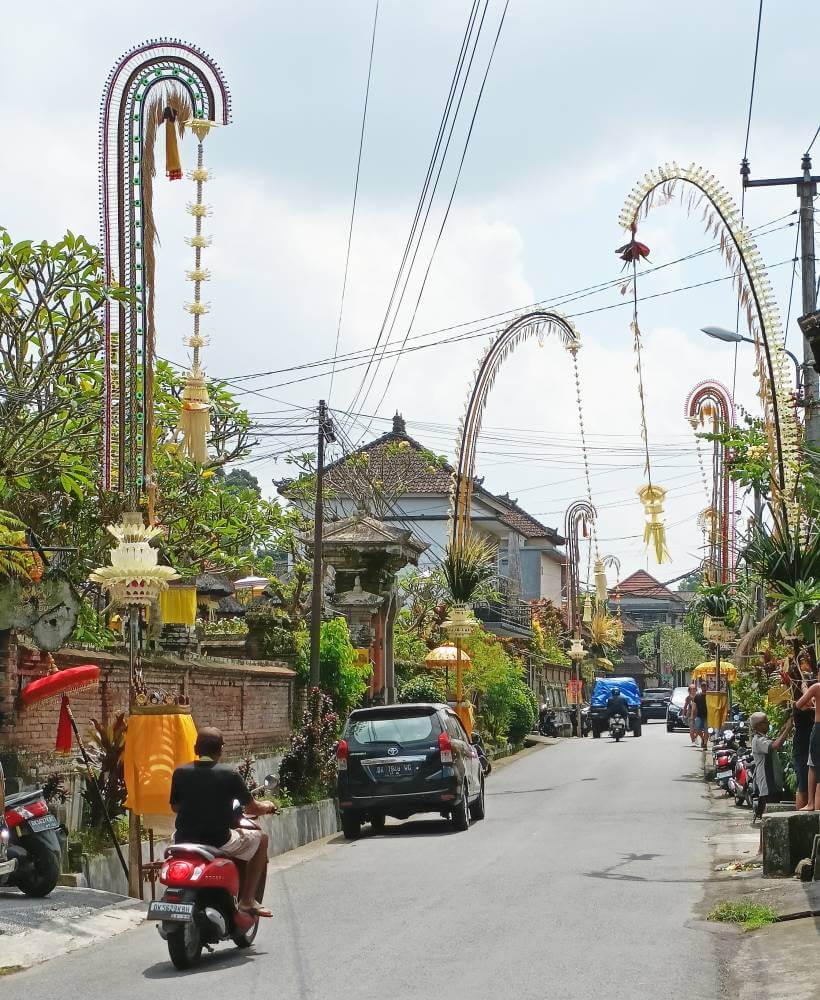
BALI, INDONESIA – Galungan gets underway this week here in Bali.
A major holiday celebrated by Balinese Hindu people, Galungan marks the victory of dharma (righteousness) over adharma (unrighteousness). It’s a time when the spirits of the ancestors return to the Earth and are present among the living.
The ancestral spirits will return to the afterlife on Kuningan day, at the end of the 10-day holiday period.
Rituals and ceremonies abound
During Galungan, Balinese Hindus participate in a series of rituals and ceremonies, including colorful, noisy processions from the temple to the cemetery and around the village.
In addition to the religious ceremonies, Galungan is also a time for socializing and family gatherings. It’s common for people to visit the homes of their relatives and friends to offer blessings and gifts.
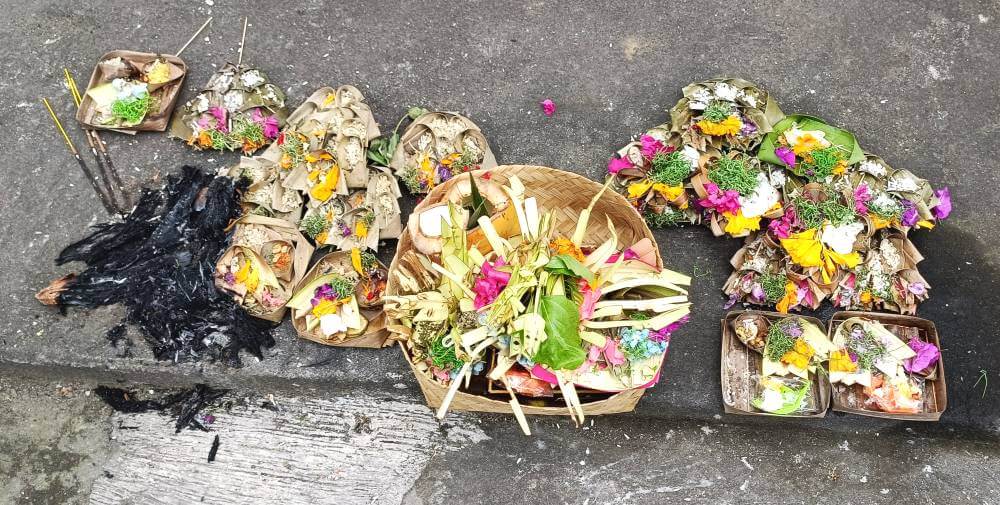
It’s a very colorful celebration, with loads of special decorations and offerings including a huge variety of intricate constructions made of flowers and other natural materials.
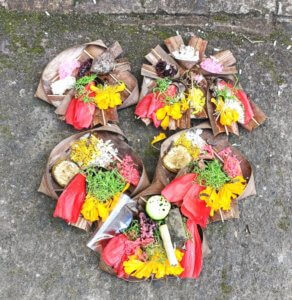
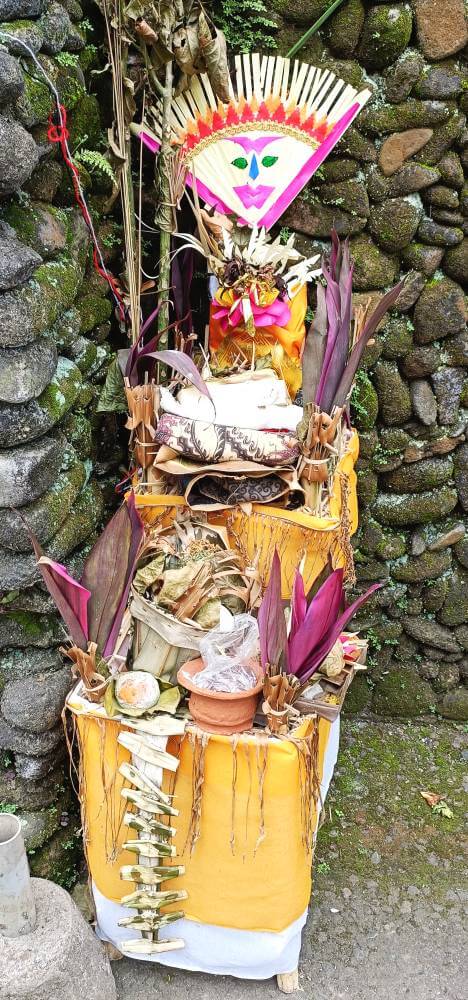
We’ve been in Bali for a few Galungan cycles now, and I love watching the preparations underway around the village where we live.
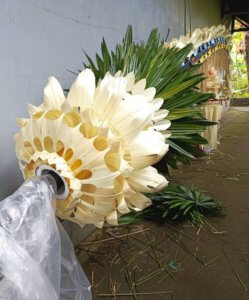
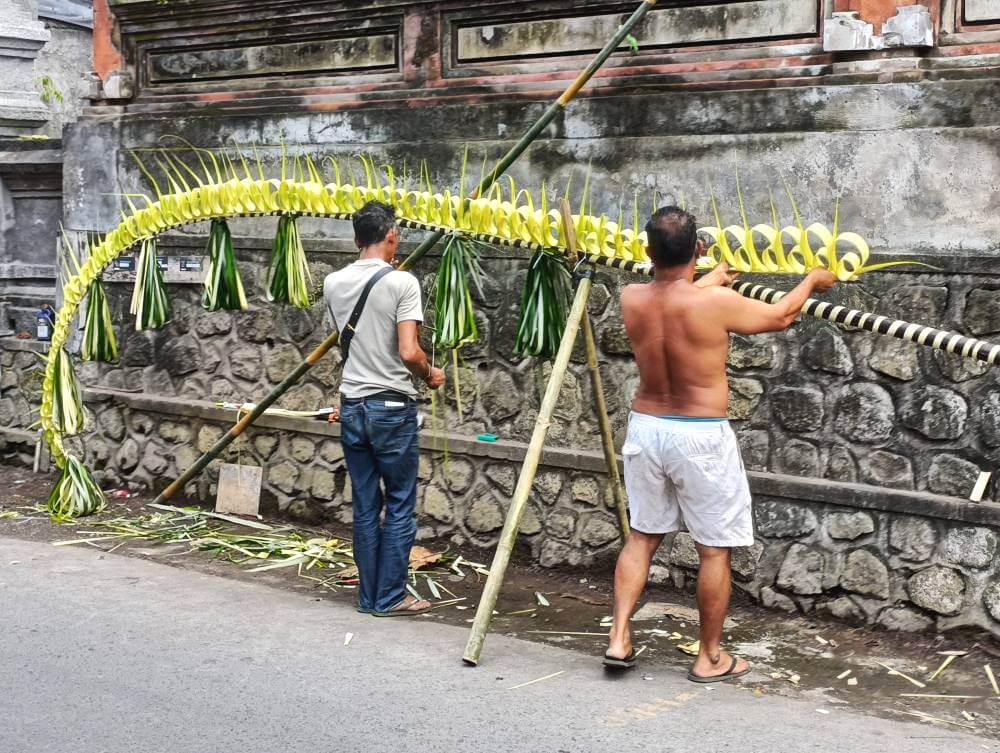
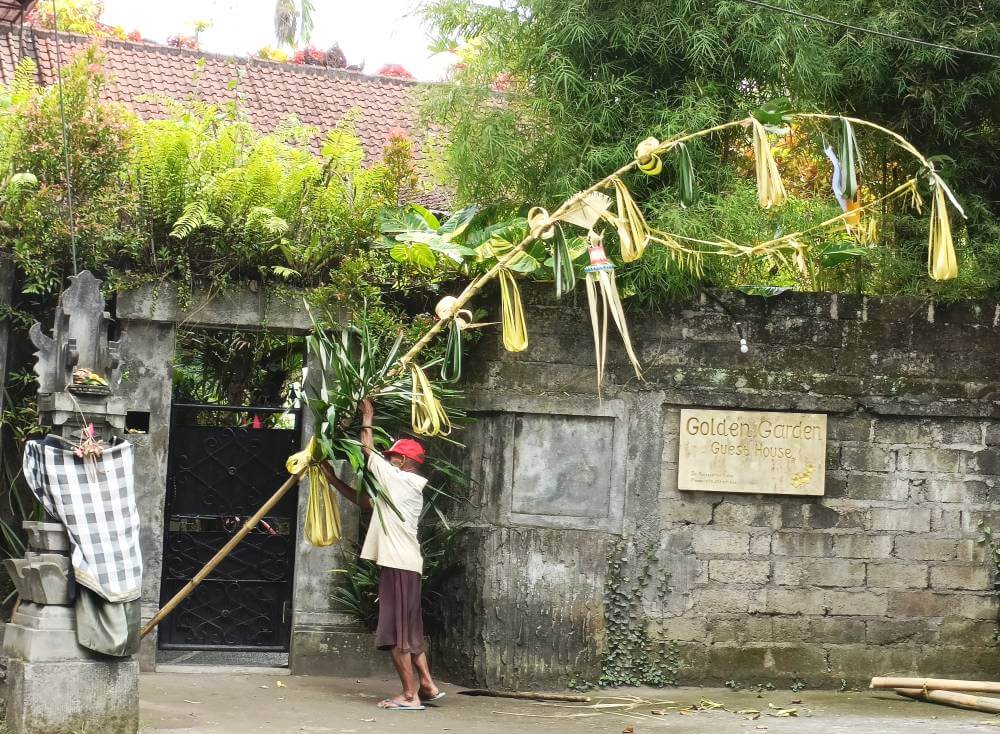
A folk art extravaganza
In the run-up to the festivities, local storefront shops suddenly overflow with premade decorations, along with bundles of raw materials for people who make their own.
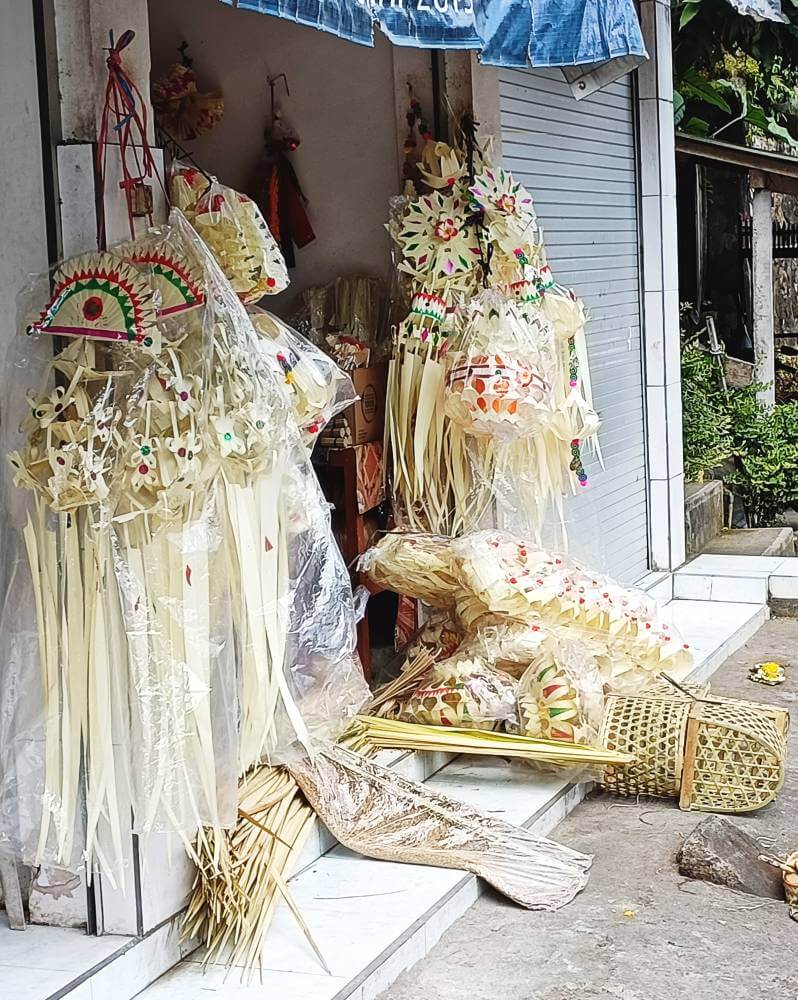
One of my favorite Galungan decorations, and one of the most important, is the penjor. A tall bamboo pole, curved at the tip, it’s adorned with decorative items such as fruit, flowers, rice stalks and woven palm leaf ornaments.
The penjor is said to represent the mountain where the gods reside and is a symbol of the connection between the human and divine worlds.
The top of the penjor is decorated with coconut leaves, representing the head of the Hindu god Siwa. The base is decorated with various items, including fruit, flowers, and other offerings.
Typically displayed outside the entrance to a home or temple, the penjor is believed to bring good luck and prosperity to those within.
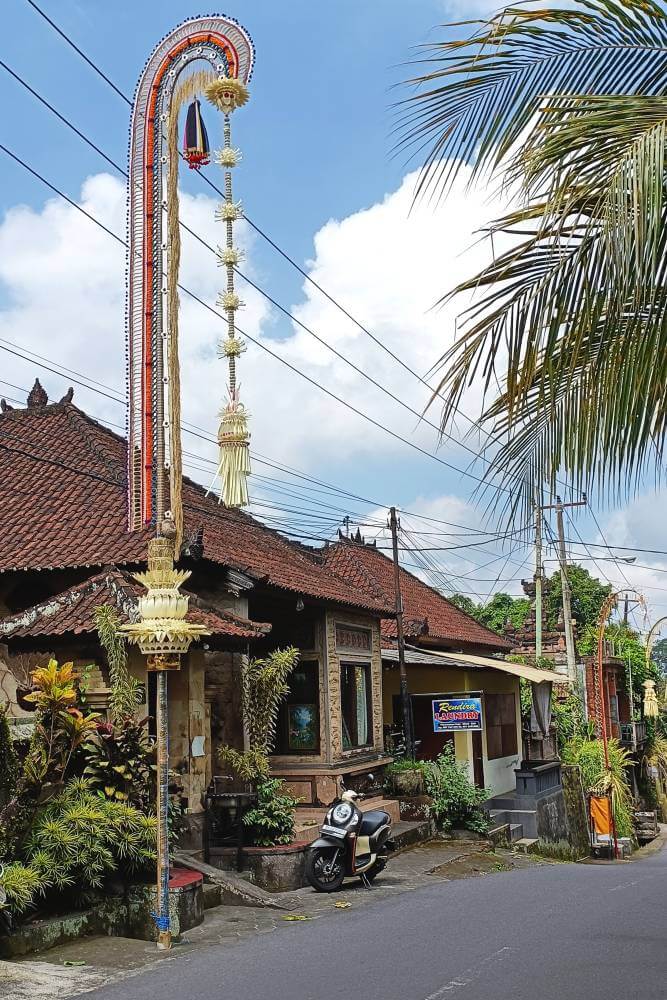
Visiting spirits are welcomed with daily offerings
There’s also a small, roofed alcove erected near the base of the penjor to house the ancestral spirits during their visit here on Earth.
Offerings are placed in this alcove each day to keep the spirits satisfied lest they decide to move into the main house (and never leave again).
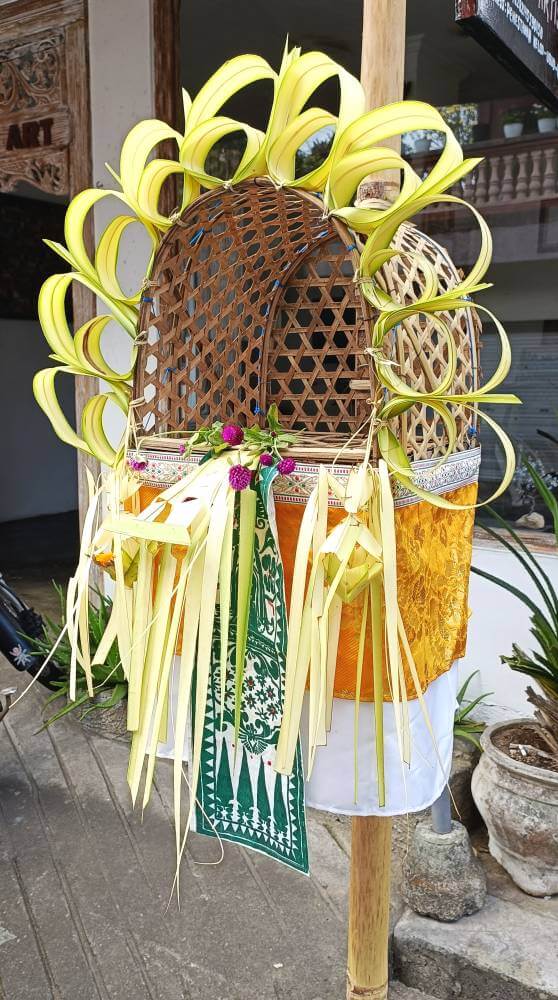
Keeping up with the Joneses?
One thing I’ve noticed about the various penjor installations is a tendency in some neighborhoods for neighbors to try to outdo each other, with each holiday’s construction more elaborate than the next.
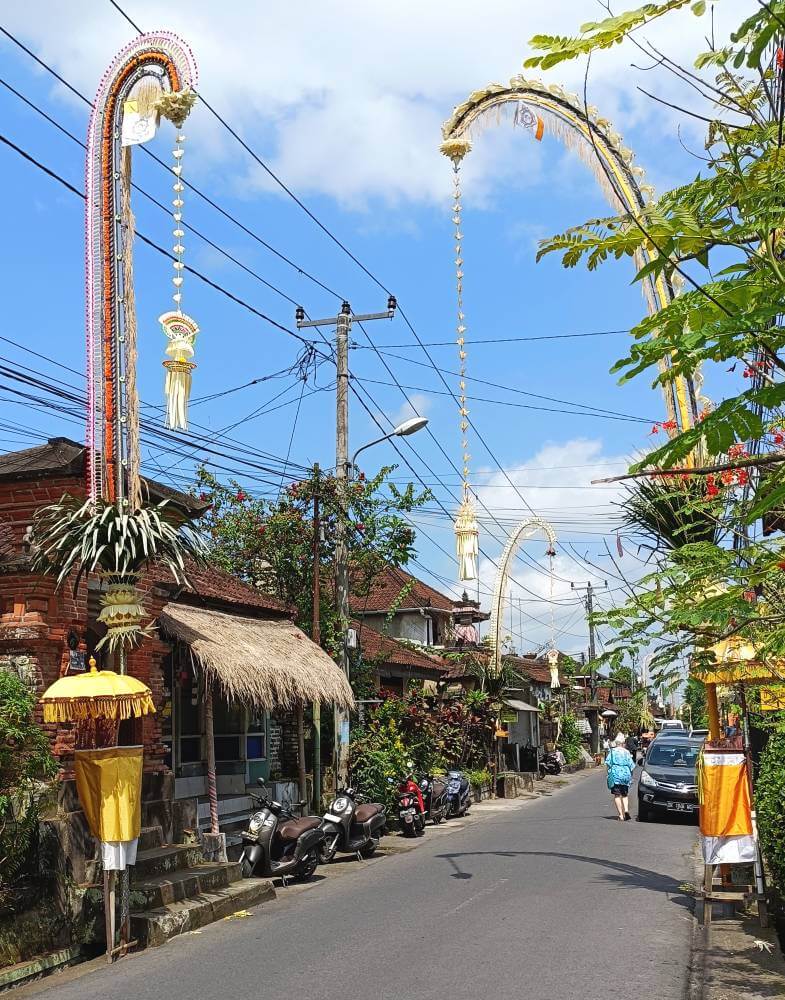
And here I thought it was only us Americans who behave that way when we decorate for Christmas.
We’ve posted a couple short videos of Balinese penjor action on Youtube. Check them out here:
